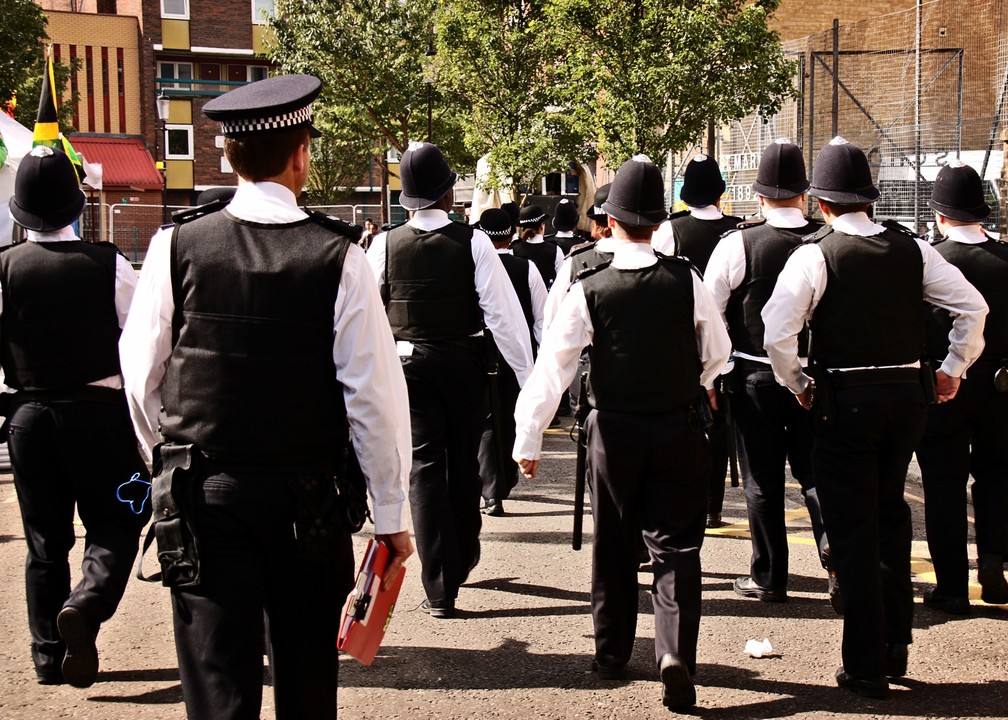London Police is one of the most efficient in the world in investigating crimes: Clarifies 90% homicide cases - in Brazil, There are no national statistics and, in Rio, is from 11,8%. Considered violent until the years 1970, The interrogation methods used by London officers are now considered exemplary both in the treatment given to suspects and in the results obtained.
In interrogations, A strict code of conduct prevents threats and aggression, physical or psychological. The regulation created more than three decades ago is being reformulated with the help of experts who, for the first time, use scientific research methods to analyze the behavior of investigators and suspects.
Who is in charge of the task is Laurence Alison. Next to his wife, Emily, also a forensic psychologist and university colleague, He has trained hundreds of police officers, military and counterterrorism forces in the United States, United Kingdom, Australia and Canada.
In an interview with G1, Alison was categorical in stating that there is no scientific evidence that aggressive methods work. On the contrary, end up getting in the way of obtaining information that leads to the resolution of crimes.
"There is no tangible evidence and no examples that I have seen or that any other researcher can indicate from actual interrogations in which these extreme techniques have worked.", says Laurence Alison. "I would be happy to receive data that I can analyze, But so far neither I nor any other researcher have had contact with this type of material and we have not even seen it work."
In London, The psychologist had an unprecedented opportunity for a researcher in the area: Evaluate almost 900 hours of secret statements of suspects and detainees to the police. There are recordings of Irish paramilitaries, members of al-Qaeda, right-wing extremists and secret agents. The aim is to apply the scientific methodology he developed to identify what works and reformulate the standards adopted by police forces in the UK and the US.
Every gesture, interaction and speech of the testimonies were exhaustively classified over eight months, following criteria developed and tested by the researchers. The research reached conclusions similar to those of interrogation specialists from the Civil Police of Rio de Janeiro, who condemn violent methods and adopt techniques to create a direct relationship with the suspects.
"Even in cases where interviewers tended only slightly toward behavior bordering on coercion or threatening, we found that it had a powerful negative effect on detainees' obtaining information. If the interviewer acted neutrally 90% of the interrogation and only a little of the time acting threatening or sarcastic, This caused the suspect to close himself completely."
Alison points out that, in London Police interrogations, found no cases of violent behavior, since the police forces in the United Kingdom follow a law called Police and Criminal Evidence Act. This legislation was created in 1984, after several notorious cases of police violence that ended badly, especially in the crackdown on Northern Irish separatists, responsible for various terrorist acts. At that time, British security forces were perceived as violent, practicing torture and even keeping prisoners in concentration camps.
Ever since, The scenario has totally changed. Today, British interrogation methods are considered exemplary and efficient.
Alison has extensive experience in studying torture methods adopted by military personnel in the fight against terrorism in other countries. Part of your research, Including, is funded by the High-Value Detainee Interrogation Group (HIG, from the original in English), program created by the United States government to reformulate the interrogation methods used by U.S. specialized police and military forces based on science.
Coordinated by the FBI, The group is an attempt to overcome the failure of the torture methods adopted in the fight against terrorism after the attacks of 11 September 2001. Soon after the attacks, The use of abusive interrogation techniques was made official for the U.S. military, such as drowning and sleep deprivation, terrorism suspects detained in prisons in Afghanistan, Iraq and the U.S. base at Guantanamo Bay, in Cuba.
A decade later, nevertheless, The program proved to be a failure, As demonstrated in an extensive report by 6 thousand pages (See here the reduced version released for dissemination in the original, in English). The study prepared at the request of the Senate Intelligence Committee – responsible for overseeing the actions of U.S. intelligence agencies – shows that advanced interrogation methods, What Acts Like Drowning Were Called, sleep deprivation and others, have no effect on obtaining useful information that leads to the capture of terrorists or prevents attacks.
The U.S. government invited Alison to show how to efficiently extract information from terrorists and other criminals without using violent methods.
The most efficient method
After years of research, Alison arrived at the method she considers most efficient, based on the concept that calls in English “Rapport”. The word does not have a faithful translation into Portuguese, but it can be understood as attunement or empathy with another person.
“This term is historically misunderstood. If we ask the general public, They tend to imagine that it is something corny, sentimental", says the expert. “But that's not what it means. In our definition and in relation to our research, It means being flexible in your dealings and creating an authentic relationship with the person in front of you. Sometimes, So, That might mean being direct, incisive and energetic, but never cruel, inhumane or humiliating."
/i.s3.glbimg.com/v1/AUTH_59edd422c0c84a879bd37670ae4f538a/internal_photos/bs/2017/3/i/2u9vBnRWOCsYebM7akhQ/interrogatorio-baseado-na-ciencia-2.png)
The expert compares the interrogation to a mental chess game in which the best interrogator is the one who can predict the next moves of the interrogated and anticipate what will happen.
For this, must have the ability to quickly identify the suspect's profile and what they want. Then, adopt the most appropriate strategy to obtain the information. The good interrogator must be cold-blooded to keep emotions out of the room, be flexible to act according to the context and establish a relationship with the suspect.
When evaluating the inmate, The interrogator must take into account at least four patterns of interaction, according to Alison: domination, submission, conflict, cooperation.
"We suggest to the interrogators that they first ask the following question: The person in front of me wants to be above or below me? They want a dominant or submissive position?", Says. "Inferior does not mean weak. You may need to be more humble, more patient, more persistent and adopt a lower position.
“The next question the interrogator should ask is: They're looking for a fight or a hug?”, says the expert. According to Alison, When they seek conflict, It is necessary to be direct and not accept provocations, but without humiliating or offending. Whether the interrogator is cooperative, It's the best of situations. Just reciprocate the gesture, being careful not to be condescending or give too much intimacy.
Training for all
The training of interrogators in the London Police is done in stages. The police officers apply and, if accepted, they need to show that they have the capacity to move forward. “There are several levels of training for interrogators. The first and second are the basic ones, that prepare for simpler cases, such as thefts and robberies. We enter from the third level, More advanced, When police officers can now deal with homicide and rape cases, for example."
The most advanced trainings involve exhaustive practice sessions, including the use of professional actors. The ideal, according to Alison, it is to have elite teams to take care of complex cases and improve the performance of the rest of the professionals to deal with simpler crimes. That's because not everyone can be a good interrogator.
“It is possible to turn a bad interrogator into a less bad one, Eliminating bad habits. But he will never be an elite interrogator”, he says. "In my experience…We train a lot, many, many individuals here in the UK, in the United States, in Canada, in Australia…You tend to find people who are naturally good and other people you can spend weeks or months training and never become interrogators."
What motivates torture
Even with all the ethical implications and not being an efficient method of obtaining information, torture continues to be used in Brazil and around the world. In your research, Alison concludes that there are two reasons for this: Revenge and despair. In the first case, People may feel that the suspect deserves it or that they will feel better if they can inflict some suffering on someone who has committed a horrible crime.
“It's an understandable emotional response to someone who has done something horrible to you, To the one you love or to your country”, says Alison. “For instance, military personnel who saw their colleague lose both legs because he stepped on a homemade mine and you expect them to interrogate the person who made the bomb. It's a difficult request. Maintaining a sense of humanity, proportion and treat the person with respect and dignity, if that person can be responsible for your friend losing his legs, the arms or life.”
Another factor that motivates torture is the lack of options, which leads to despair in cases where the suspect does not cooperate in any other way. “The truth is, some suspects won't talk to you. You can use all the methods and tactics in the world and they won't talk to you. And people get desperate and think 'good, We tried it all, So what's wrong with trying (The torture)?”, Claims.
“We have to respect the work of interrogators more, understand the challenges they face, understand a little more the emotions they may be feeling depending on the situation. It's an incredibly difficult and complex job, in which constant emotional control is needed and not to bring too much emotion into the room, Do not bring too much of your personal opinion and seek to understand, instead of assaulting, Threatening and taking revenge on someone – Why none of this works.”

